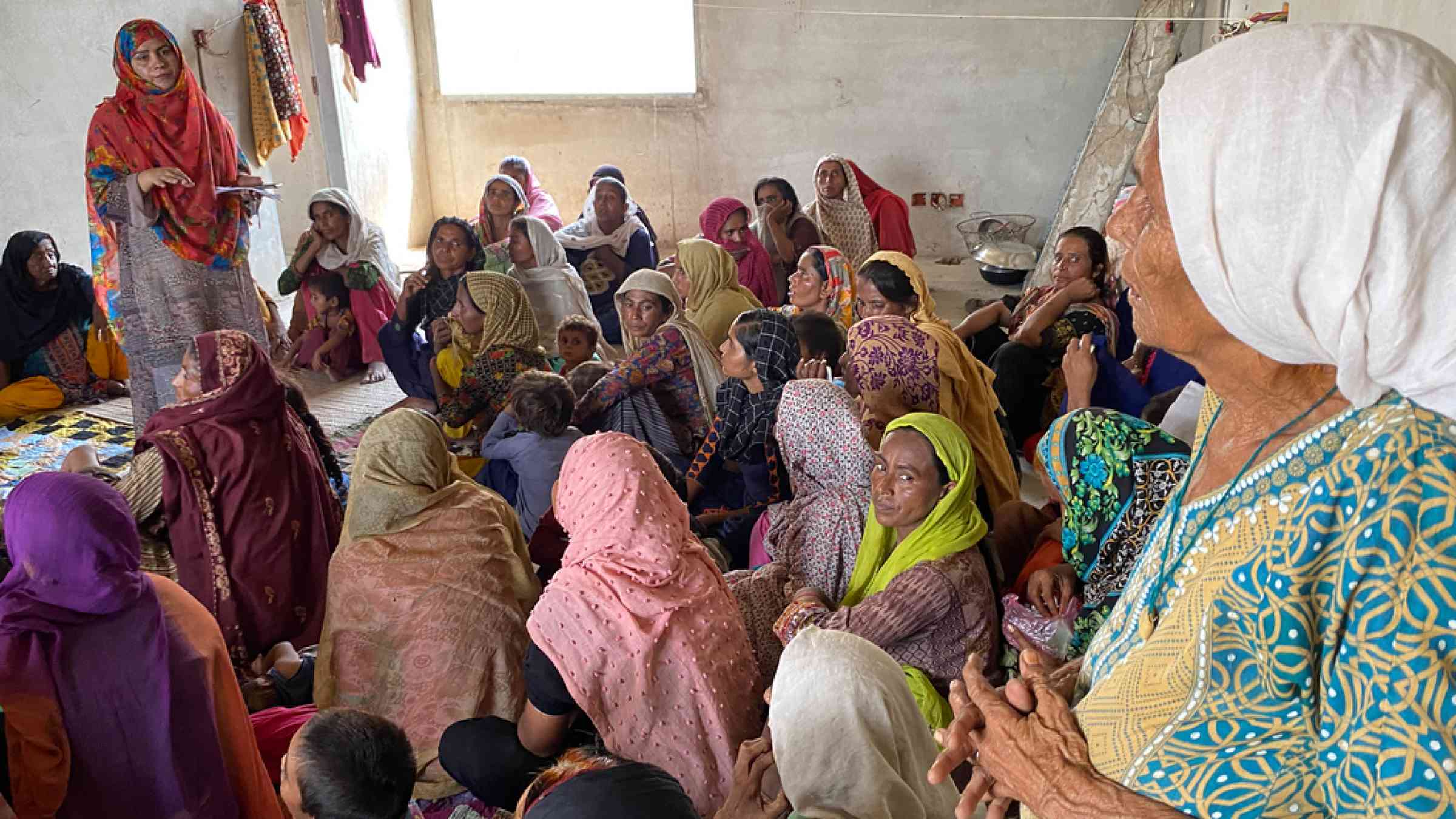
The world is grappling with increasingly frequent and severe disasters. Traditional disaster-response mechanisms, which focus on post-crisis relief, have proven costly and often inadequate. Instead, the solution lies in shifting from reactive to anticipatory strategies. And locally led anticipatory action - where communities prepare for forecastable hazards before they occur - provides a sustainable, community-centred approach to disaster management.
Pakistan's unique geographical landscape means its communities face rising threats from monsoon floods, droughts and earthquakes. Locally led anticipatory action for these hazards may involve early warning systems, pre-positioned relief supplies or activating community-based contingency plans ahead of forecast events. For example, for farmers in areas where monsoon floods threaten their crops or livestock, community-based early warning systems have proven successful in reducing the loss of life and protecting livelihoods. These systems are often informed by indigenous practices, such as monitoring the situation of clouds. By integrating traditional knowledge with other anticipatory action systems, local communities can act swiftly and effectively, reducing the impacts of hazards.
The wider benefits of locally led anticipatory action
Locally led anticipatory action capitalizes on the fact that communities are often best placed to act immediately. They are already on the ground, familiar with their terrain, and well versed in the specific challenges of their locality. External responders, by contrast, often face delays in reaching a hazard-hit region, due to logistical issues or unfamiliarity with local dynamics. Empowering communities to manage risks independently and reduce their dependency on external aid is a significant long-term benefit of locally led anticipatory action. This is especially true in Pakistan, where natural hazards are recurrent and investing in local capacities is crucial for ensuring people are better prepared.
Another advantage of locally led anticipatory action lies in cultural sensitivity. Humanitarian interventions are more likely to succeed when they align with the cultural values and norms of the community. Likewise, local leaders, trusted by their communities, are better positioned to mobilize people to join pre-emptive actions such as evacuations and early harvesting of crops.
These advantages were evident during the Covid-19 pandemic, where local organizations in Pakistan were more successful in implementing hygiene-promotion campaigns than external actors. By adapting their messages to fit local customs and beliefs, they achieved higher compliance with preventive measures, especially in rural areas. Local faith leaders also played an important role in promoting health and hygiene practices, using religious teachings to encourage preventive measures such as hand washing and wearing masks.
A forward-thinking approach for Pakistan
As Pakistan continues to face increasing challenges from natural hazards, locally led anticipatory action offers a sustainable solution - one that empowers communities, saves lives and reduces the need for costly, reactive interventions. By focusing on local expertise and promoting community ownership, humanitarian efforts in the country can become more effective and contextually relevant.
For locally led anticipatory action to thrive in Pakistan, there must be sustained investment in local actors, adequate funding and capacity-building initiatives. Genuine partnerships between international and local organizations, where local actors are empowered to take the lead, will also ensure that disaster preparedness efforts are both resilient and responsive to the unique needs of communities.
By shifting from crisis response to crisis prevention, Pakistan's most vulnerable populations will be better equipped to cope, adapt and thrive in the face of future adversity. Locally led anticipatory action represents a forward-thinking approach to building resilience - one that prioritizes proactive measures over reactive ones, and that will ultimately mean a step towards a more secure and sustainable future for all.
How to strengthen locally led anticipatory action
Despite growing evidence of its benefits, locally led anticipatory action requires further support, both in Pakistan and elsewhere. Several practical steps can help to achieve this.
Invest directly in local communities
- Donors should reallocate a portion of their humanitarian funding to support local organizations directly. This shift would provide local actors with the financial resources needed to design and implement anticipatory action systems.
- This could include the establishment of dedicated funds for local actors involved in anticipatory action, or grants for projects that support community-led initiatives.
Localize the humanitarian system
- Decentralizing decision-making and empowering local communities and organizations involves transferring authority and responsibility for disaster preparedness and response to local actors.
- For this to be effective, there is a need to strengthen local governance structures in many places, so that they can effectively manage disaster preparedness efforts. This could be through building capacity within local disaster-management committees and enhancing their roles in the planning and execution of anticipatory action.
Bridge capacity gaps
- Training programmes can enhance local expertise in areas such as disaster forecasting, data analysis and resource management. This could involve partnerships with technical experts and institutions to provide hands-on training and mentorship.
- Local organizations need access to the necessary tools and technologies for effective anticipatory action. This may include early warning systems, data-analysis software, online mobile applications for weather forecasting, damage and needs assessment tools linked with disaster management authorities, and forecasting models.
- Platforms for local actors to share best practices and lessons learned can build their capacity and expertise. This can be facilitated through workshops and conferences, or through online forums that promote the exchange of knowledge and experiences.